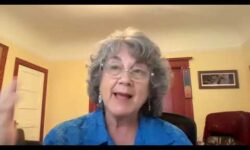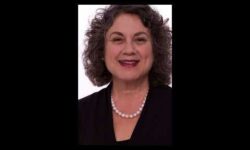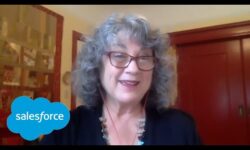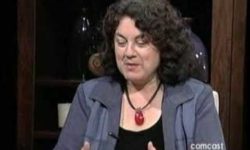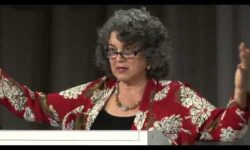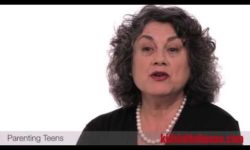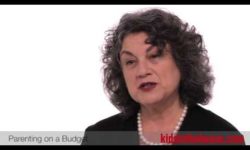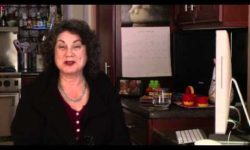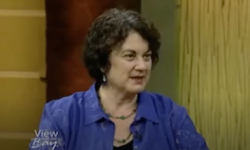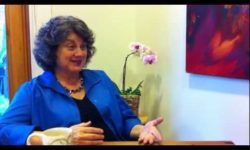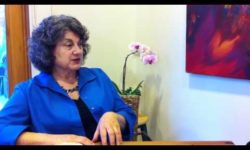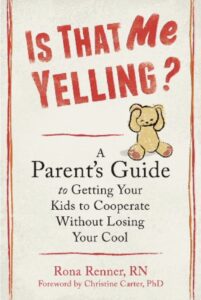 “Is That Me Yelling? A parents guide to getting your kids to cooperate without losing your cool” was published in 2013 and is available in 5 different languages. It’s a best seller in China, but here in the US you can only get it now on Kindle until the next edition.
“Is That Me Yelling? A parents guide to getting your kids to cooperate without losing your cool” was published in 2013 and is available in 5 different languages. It’s a best seller in China, but here in the US you can only get it now on Kindle until the next edition.
If you would like to set up a presentation or training for your child’s preschool or your workplace, you can contact me at .
Is That Me Yelling? is:
“Engaging and practical, humorous and evidence-based, prescriptive but not preachy, authoritative yet never stuffy, Is That Me Yelling? quickly rises to the top of the many parenting books I’ve ever read. Rona Renner provides thoughtful and achievable solutions. If you’re a parent who has ever yelled at your kid and wished you hadn’t, this book is for you.”
—Stephen P. Hinshaw, PhD, professor in the department of psychology at the University of California, Berkeley; and vice-chair of psychology at the University of California, S.F.
“Is That Me Yelling? is a complete and compassionate companion for every parent and educator. With excellent examples from her extensive professional and personal experience, nurse Rona illustrates fundamental psychological principles and functional parenting practices with empathy and enthusiasm.”
—Marisol Muñoz-Kiehne, PhD, clinical psychologist, parent educator, radio host, and author.
Our Goodbye Show
On September 9th 2024 I said goodbye to the listeners of About Health on KPFA radio. I’ve been hosting the show for 9 years. I was very sad to end the show, but I’m ready to move on to other things. It’s been a privilege to host About Health and meet so many dedicated and wise people who joined me on the air over the years. I am also grateful to all of the listeners and callers, and to the other hosts, David Feldman, and Michael Lenoir. Thank you!
If you would like to hear our final show you can listen here:
https://kpfa.org/player/?audio=431317
As I say at the end of most shows: May you be healthy, happy, and live with ease as best you can.
Rona
Here is a picture of some of the people I love spending time with: Maia, Leo, David, Mick, Maceo, and Kai. As the grandma of five, my life is filled with joy. I thank my children for this gift.

Third Ear: Reflections on the Art and Science of Listening (9/2/24)
With so much at stake in our world, people of my generation often ask themselves, and each other, “What can I do?” How can I help, aside from making donations, writing postcards or making calls to try and persuade someone to change their mind about political leaders? How can we help our society transform into a more caring, connected, and empathetic place to live?
Some spiritual teachers and psychologists suggest that we have to start with our own way of being in the world. We have to start with ourselves. That makes sense to me. If I can increase my compassion towards others and myself, perhaps my attitude will have a ripple effect.
I hadn’t thought about “Third Ear Listening” until I learned from Elizabeth Rosner about her new book…Third Ear…Reflections on the Art and Science of Listening. This book is about many things, including our well being…as individuals, family members, and humans living in a world that needs us to pay deep attention.
LISTEN NOW
https://archives.kpfa.org/data/20240902-Mon1400.mp3

Elizabeth Rosner is a bestselling novelist, poet, and essayist. Her works include Survivor Café: The Legacy of Trauma and the Labyrinth of Memory, and the novels Electric City, and Speed of Light. Her newest book is Third Ear: Reflections on the Art and Science of Listening. This book tells personal stories of a multilingual upbringing as well as research of the latest scientific breakthroughs in interspecies communication. Having taught writing for over 30 years, Elizabeth travels widely to lead intensive writing workshops, to lecture on contemporary literature, and to visit with book groups. She is a long time resident of Berkeley, California.

Writing To Rewire Your Brain From Trauma
“Whether or not we share our story with others, processing past experiences by writing them down on paper lets us see our trauma in new and more transformative ways. The Adverse Childhood Experiences Guided Journal, offers powerful exercises, prompts, and write-to-heal techniques grounded in neuroscience to help readers recognize patterns of trauma from their childhood and build resilience by rewriting their brain’s internal story. Through thoughtful, guided writing experiences, you’ll find the strength to live authentically—with hope and optimism for the future.” —Donna Jackson Nakazawa.
Listen now to the show on 8/19/24, KPFA.org online, and 94.1FM in the Bay Area
Guest:
Donna Jackson Nakazawa is an award-winning science journalist and author of eight books exploring the connections between emotion, adversity, and well-being. Her bestselling book, Childhood Disrupted, was a finalist for the Books for a Better Life Award. Her newest book, The Adverse Childhood Experiences Guided Journal offers targeted writing techniques to help readers recognize the effects of childhood adversity and reset their brain’s internal stories for neurobiological resilience. It is based on Donna’s popular narrative writing-to-heal program, Your Healing Narrative. Donna’s other books include Girls on the Brink: Helping Our Daughters Thrive in an Era of Increased Anxiety, Depression, and Social Media, named a best book of 2022 by The Washington Post, and The Angel and the Assassin: The Tiny Brain Cell That Changed the Course of Medicine, named a best book of 2020 by Wired. Her writing has appeared in Wired, The Boston Globe, Stat, and The Washington Post. She has appeared on The Today Show and NPR and is a regular speaker at universities and organizations, including the Child Mind Institute, Harvard Science, UCLA Health, Rutgers, Johns Hopkins, Children’s Hospitals, and the Andrew Weil Center for Integrative Medicine. Learn more at donnajacksonnakazawa.com

Living Life Fully While Befriending Death
About Health 8/12/24 on 94.1FM–KPFA.org
Listen now: https://kpfa.org/player/?audio=428946
Death is a part of life, but many people are afraid to talk about their fears about dying, how they want to live in the present, and their priorities for care at the end of life. Often people find themselves in challenging situations when they are faced with a dying relative or friend, not sure what steps to take to honor the dying person’s wishes.
Are you prepared? Do you have an advanced health care directive and will or trust? Have you talked to your loved ones about your decisions for care at the end of your life? If not, you are not alone.
Guest
Eileen Spillane is the founder of Befriending Death, a platform that offers the signature course “Let’s Chat About Death” as well as 1:1 coaching, a book club, and community gatherings. Her most recent course is Befriending Death, Befriending Your Life: Aligning your wild and precious living with what matters most. Launching on 9/14/2024.
Her motivation to create these courses came from many years as a Critical Care Nurse witnessing unnecessary suffering. Her hope is to normalize conversations around death with a supportive, friendly community, so life and death decisions can be approached long before one is hospitalized. In addition to working as a Registered Nurse for over thirty years, Eileen is a meditation and dharma teacher, and works as an active travel guide for international hiking and biking trips. She is a former Zen Hospice Project volunteer and a trained end of life doula.
To learn more about her work and offerings go to https://www.befriendingdeath.com/
Maternal Health: What’s Changed And What The Future Holds

Listen now to About Health (7/8/24) on KPFA.org 94.1FM
https://archives.kpfa.org/data/20240708-Mon1400.mp3
We discussed the many major issues people face related to pre-natal care, pregnancy, abortion, mental health, birth, c-sections, and postpartum complications. Racial disparities exist and Black women are three times more likely to die from a pregnancy-related cause than White women. There are many factors that contribute to these disparities, such as the quality in healthcare, any underlying chronic conditions, racism, and implicit bias. We will talk about some of the social determinants of health, and what can be done to reduce infant and maternal illness and death.
Guest:
Amanda P. Williams, MD, MPH, FACOG is the Clinical Innovation Advisor with the California Maternal Quality Care Collaborative (CMQCC) based at Stanford University School of Medicine where she also is an adjunct faculty member in the Department of Obstetrics and Gynecology. In Spring 2024, Dr. Williams founded Poplar Lane Advisors LLC to create a platform to support startup companies and non profit organizations navigating the world of maternal health equity.
Dr. Williams previously served as Medical Director at Mahmee, a tech-enabled maternal health company dedicated to improving health equity and empowering families with wraparound care during the pregnancy and postpartum period. In this role she oversaw the company’s clinical programming, while fostering institutional partnerships, developing new business opportunities and supporting investor outreach.
Prior to joining Mahmee, Dr. Williams was a practicing OBGYN at Kaiser Permanente Oakland Medical Center where she served as Director of Maternity Services. Additionally, she oversaw the maternity continuum across Kaiser’s 15 medical centers in Northern California. She has also served on several state and national committees, such as the California Pregnancy-Associated Mortality Review, the California Surgeon General’s perinatal redesign stakeholder group, and the National Quality Forum Maternal Morbidity and Mortality work group.
Dr. Williams is a Magna Cum Laude graduate of Harvard University. She completed her medical degree at Emory University School of Medicine where she also received a master’s degree in public health. She completed her graduate medical training in Obstetrics and Gynecology at The University of California, San Francisco. Dr. Williams is a prominent voice on maternal health and health equity.


